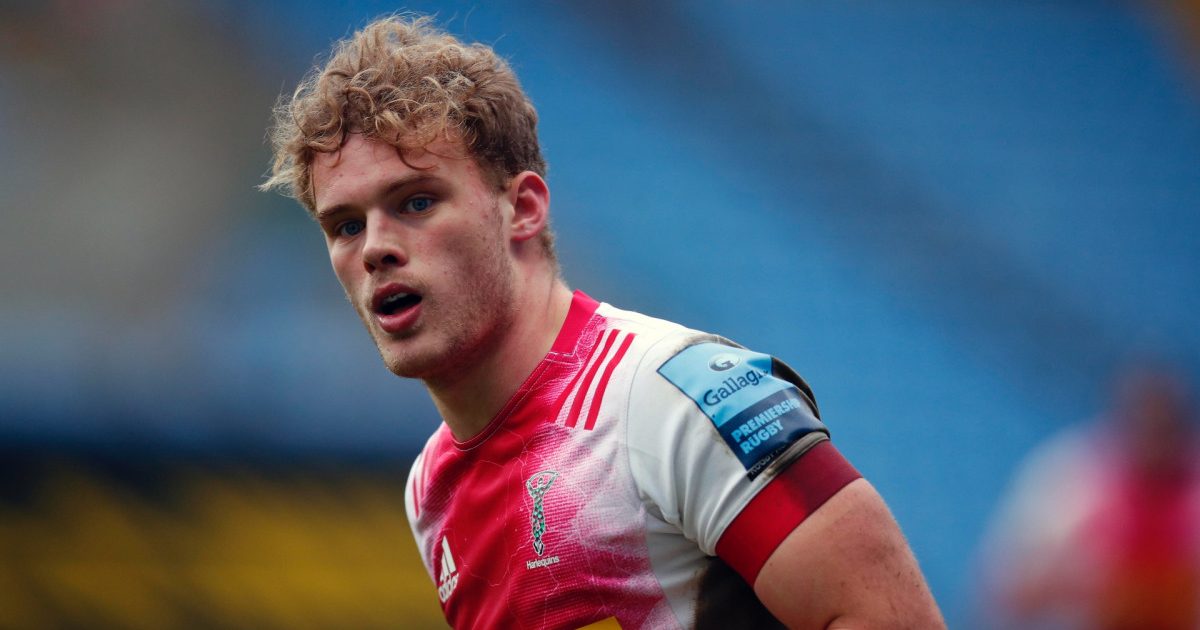'It's slightly weird for me because his dad was my idol growing up'

Harlequins general manager Billy Millard has spoken about the background in recently convincing Louis Lynagh – the son of Michael, the legendary World Cup-winning Wallaby – that his future is best served by staying with the Londoners rather than seek out a Super Rugby contract in his father’s native Australia.
Lynagh’s younger brother Tom has agreed to a deal that will take him into Queensland Reds set-up next August but Louis, the 21-year-old born in Treviso when his dad was there in 2000, felt it best to stay with Harlequins and keep developing there.
Following a Gallagher Premiership debut off the bench at Leicester in the final game of last season, Lynagh has catapulted up the Harlequins selection pecking order to make seven more league appearances this season, starting on six occasions and scoring twice on the wing.
That emergence resulted in an unspecified length contract deal being signed on March 4 by the Harlequins academy graduate and Millard, the Australian currently overseeing the team through to the end of this season following the sudden departure of Paul Gustard, is chuffed that Lynagh has chosen to remain at The Stoop rather than seek out pastures elsewhere.
“Louis is such a great kid. He has got leadership potential, is very professional and diligent and has great energy,” said Millard. “It’s slightly weird for me because his dad was my idol growing up.
"There are some conversations going on"
– It's now 49 days since Gustard exited as the Harlequins boss #PremRugby https://t.co/nKRB41WaOU
— RugbyPass (@RugbyPass) March 10, 2021
“Getting to know Michael a bit closer – Michael and Louis have a great relationship and Louis is just a really good fit (for Harlequins). He took his opportunity really well. You all saw it, he is a good footballer and he is just starting out. He has got a lot of competition there which he is not shying away from. He has got a big future.”
Asked if it was difficult to convince Louis to stay and not follow the Australian route his brother Tom is taking, Millard added: “I don’t think so. There were a couple of conversations there. He has got a lot of close friends here and we provided him with the opportunity and we see a long-term future for him here.
“Tommy going back to the Reds, again he is his own man and that is a great opportunity for him but we were very keen for Louis to stay for a whole lot of reasons. I wouldn’t say it happened quickly but it was quite easy conversations. He asked a lot of good questions and we got there quite naturally.”
Is Louis a chip off the old block Millard was so enthralled by when he was growing up in Australia? “Different positions, so not really. Louis is a strike runner, he is playing out wide, he can play at full-back as well.
“He has got a good kick on him but his dad was the master ten back in that era and was a very good goal kicker. They are different, they are their own men but you can see similarities in the way that they move at times and just some of their little demeanours.”
"I'm glad he is with is. I'm glad he isn't with England at the moment"
– Some disappointed Test fans want Marcus Smith playing for England but Harlequins are happy their workaholic is currently firing up the Premiership #PremRugby #SixNationshttps://t.co/ZHOvTl77ob
— RugbyPass (@RugbyPass) March 4, 2021










































































